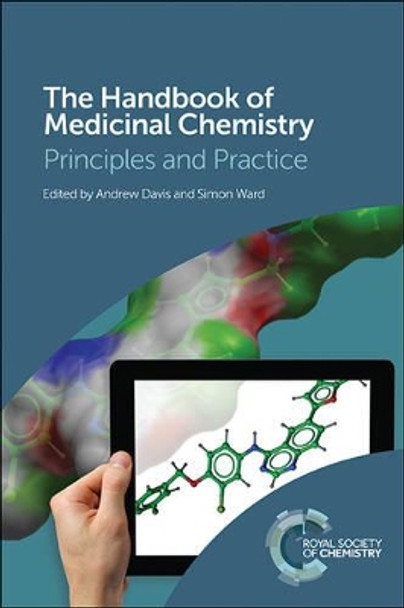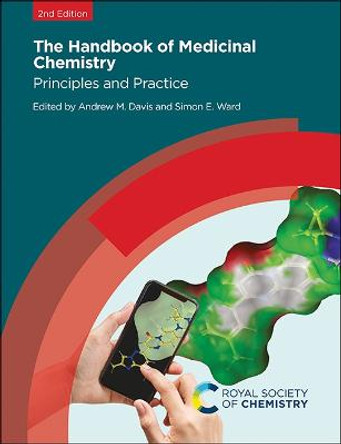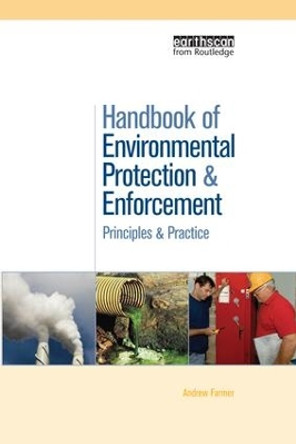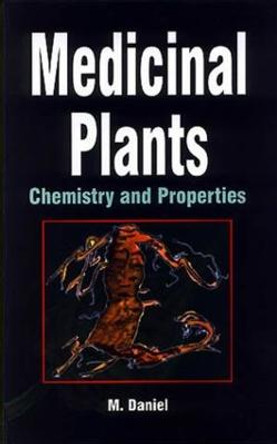Description
For a medicinal chemist in academia, it is relatively hard to find a textbook that is advanced enough to satisfy faculty, postdoctoral workers, and postgraduate students, but that can also be dipped into when developing an undergraduate programme. For many years, for me, the "go-to" text has been Foye's Principles of Medicinal Chemistry, although the primarily US focus can be problematic when talking to UK pharmacists and chemists. Now, it looks like we have another, excellent, newcomer in the form of The Handbook of Medicinal Chemistry, edited by Andrew Davis and Simon Wood. This is a book that has its heart on its sleeve-drugs should be small (MW<500) and natural products, antibodies, or polymers have no place in this world. The argument against drugs that don't conform to the Lipinski rules is set out even in the readable and immensely interesting introduction by Simon Campbell, formerly of Pfizer, who ends by suggesting a meeting of minds between industry-trained medicinal chemists moving into academia alongside (presumably nonindustrytrained) biologists and clinicians. As a nonindustry-trained chemist, I can see the benefits and the disadvantages to this approach. In academia, we can benefit from the knowledge and experience that comes from an industrial perspective, but we also have the potential to explore the blue skies of molecules and targets that would be ignored in the pharmaceutical industry. This is a book that is focussed on the realism of medicinal chemistry research on synthetic small molecules, and it dives straight in to a discussion of physicochemical properties and compound quality in its first chapter. This ends with a very useful table of tips that, at least in part, boils down to the notion that optimisation of small molecules for drug development should be a multivariate rather than serial concern, and that target affinity and selectivity must be assessed alongside molecular properties and pharmacokinetics. The next few chapters focus on techniques that aid in molecular design to find that elusive lead compound: computational chemistry, parallel synthesis, fragment- and structure-based drug design, and quantitative structure-activity relationship (QSAR) before delving in to the world of drug metabolism and pharmacokinetics- the latter could be an extremely dry subject but is enlivened by the inclusion of some nice real-world case studies. One of the real strengths of this new addition to medicinal chemistry textbooks then comes to light and really shines. This is the section on biology and the development of assays. To a chemist working in the laboratory to make new molecules, the beauty is in the design of the synthetic route and the resulting pure molecule. For many years, the pharmaceutical industry has focussed its efforts on the recruitment of pure organic chemists, with a multistep total synthesis behind them, as this demonstrates that they can make molecules and they can then learn the "rest"-i.e. the very essence of this book-on the job. This ignores the huge importance in being able to understand, and even help to develop, molecular biology and/or cell-based assays that are the first steps in demonstrating the efficacy of your new molecule and can point you in the right direction for the synthesis of the next one. Many medicinal chemistry textbooks ignore these aspects and the following preclinical development of molecules entirely, and this, of course, is the place where all the attrition occurs. This one takes you all the way to the clinic, with a slight (but enlightening) detour to discuss the patent process and its associated pitfalls. Another strength is the inclusion of case studies written by those at the coalface, and these can be really inspirational in the development of teaching tools for undergraduate students. Several years ago, I was looking for some way to enhance the "drug metabolism" (DM) lectures I was giving to second-year pharmacy students. While at a medicinal chemistry meeting in Horsham, I happened to see a beautiful talk on the development of ezetimibe, in which an understanding of the metabolism of a lead compound led to the development of the clinically used agent. With the permission of the speaker (Duane Burnett), this story has formed the centrepiece for those DM lectures ever since (now given by one of my colleagues!). The stories here-aleglitazar, lapatinib, ticagrelor- give wonderful insights into the thought processes and the pitfalls of drug development and will undoubtedly be transformed in a similar way and across chemistry, pharmacy, and pharmacology departments into examples as to how clinical agents come to be. I was particularly taken with the section that begins "I wouldn't start there" as part of the ticagrelor story and the assertion by the authors that the location of the (then) Fisons pharmaceuticals, in Loughborough and within reach of cardiology groups in Leicester and Nottingham, played a pivotal role in the development of the drug. Perhaps this is something that CEOs should reflect upon when closing or moving sites-local knowledge can be hugely beneficial. The book is very nicely designed. My only minor quibble might be the order of the chapters. I would perhaps have started with Chapters 18-20 and followed these with some of the early techniques chapters which further reinforce the concepts introduced. Overall, though, this is an excellent addition to the (limited) range of medicinal chemistry textbooks and will no doubt become a must-have for many bookshelves. It will sit on my desk for a long time, becoming somewhat dog-eared, no doubt, as I dip into it both for relevant information and also for a good read. -- Professor Mark Searcey, University of East Anglia ChemMedChem
About the Author
Andrew Davis read Chemistry at Imperial College of Science and Technology and then completed a PhD in Physical Organic Chemistry with Professor MI Page at the University of Huddersfield. He joined Fisons PLC Pharmaceuticals Division in 1988, which became part of the Swedish pharmaceutical company Astra AB in 1995. Astra merged with Zeneca PLC in 1999 to form AstraZeneca PLC. Dr Davis has spent the last 23 years in drug discovery, in line management, project and portfolio management and senior science roles. He has recently relocated to Sweden with AstraZeneca as Senior Principal Scientist and project leader in Chemistry with the Respiratory and Inflammation Innovative Medicines in Gothenburg. Simon Ward has an MA in Natural Sciences and a PhD in synthetic organic chemistry from Cambridge University. He has a wide ranging experience of drug discovery in both large and small companies (GlaxoSmithKline, Knoll Pharmaceuticals, Vernalis, Chiroscience) and specialist experience of discovering and developing drugs for central nervous system indications. He has led multidisciplinary project teams and medicinal chemistry groups from target identification, through to early clinical studies, delivering multiple clinical development candidates across indications. Simon is a Fellow of the Royal Society of Chemistry and is currently Professor of Medicinal Chemistry at the University of Sussex, UK and Director of the Translational Drug Discovery Group, which he established within the University of Sussex in 2010.
Reviews
"it looks like we have another, excellent, newcomer in the form of The Handbook of Medicinal Chemistry, edited by Andrew Davis and Simon Wood." "The book is very nicely designed." "this is an excellent addition to the (limited) range of medicinal chemistry textbooks and will no doubt become a must-have for many bookshelves." -- Professer Mark Searcey, University of East Anglia * ChemMedChem *
Book Information
ISBN 9781849736251
Author Andrew Davis
Format Hardback
Page Count 753
Imprint Royal Society of Chemistry
Publisher Royal Society of Chemistry
Weight(grams) 1666g








